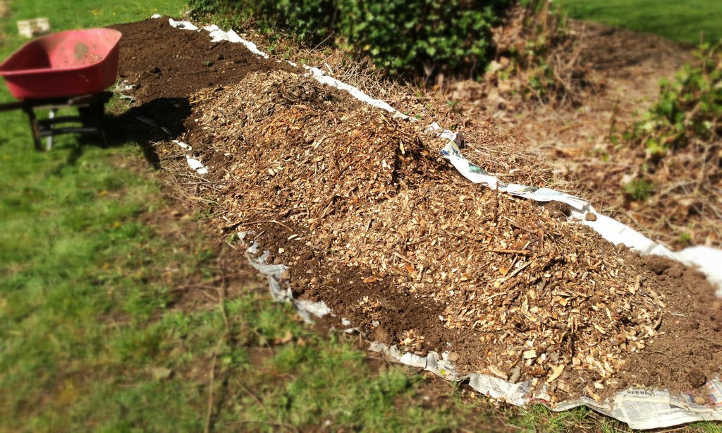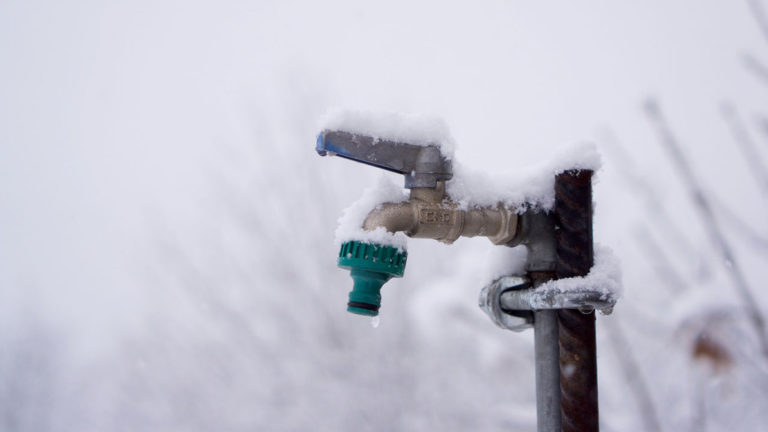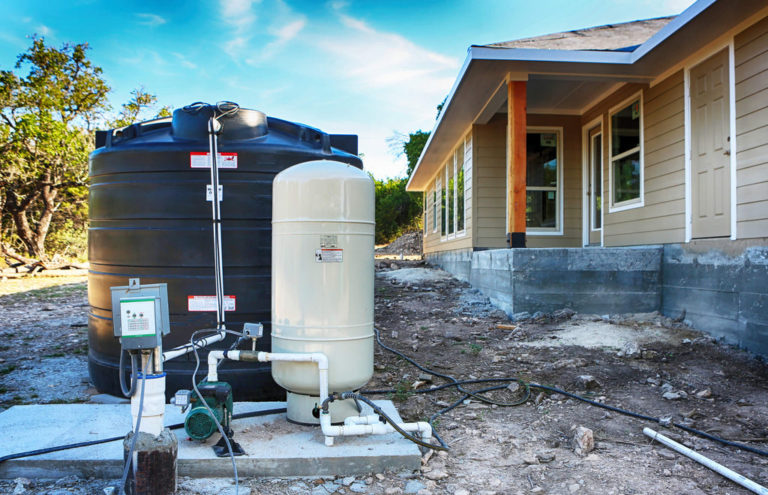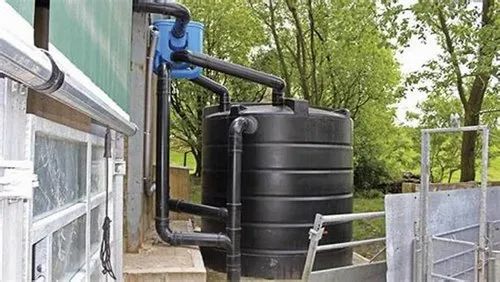As a property owner off the grid, you understand the importance of sustainable land management practices.
One effective way to maintain soil health and retain irrigation is by using mulch.
Mulch acts as an insulation layer around plants, preventing weed growth and reducing evaporation.
It helps control erosion by holding soil in place during heavy rainfall or strong winds.
By incorporating mulch into your land management strategy, you can improve the overall health of your off-grid property while also enhancing its aesthetic appeal.
Whether you’re dealing with arid conditions or abundant precipitation, there are specific types of mulches that suit various climates and soil types – so let’s dive into exploring which mulch options work best for your unique setup!
Soil Erosion Prevention
Mulch acts as a protective barrier around plants, preventing soil erosion caused by rain, wind, and runoff water. It helps to retain soil moisture, reduce soil crusting, and prevent soil compaction.
By acting as a protective barrier around plants, mulch prevents soil particles from being washed or blown away, thereby maintaining soil health and preventing erosion.
Mulch helps to retain soil moisture, reducing the need for frequent watering and preventing soil crusting.
This is especially important in areas with clay soils, which can become compacted and unable to absorb water efficiently.
Moreover, mulch can help to prevent soil compaction, which can be caused by heavy foot traffic or equipment.
By maintaining soil porosity and promoting healthy soil structure, mulch ensures that plants receive the necessary nutrients and water to thrive.
Mulch is an essential component of soil erosion prevention and can be applied to a variety of landscapes, from residential gardens to commercial properties and agricultural fields.
Moisture Retention
Mulch retains soil moisture, reducing the need for frequent watering and minimizing soil evaporation. This helps to conserve water, particularly in arid regions.
Moisture Retention: Mulch retains soil moisture, reducing the need for frequent watering and minimizing soil evaporation.
This helps to conserve water, particularly in arid regions.
By incorporating mulch into your garden or landscaping, you can significantly reduce the amount of water needed to maintain healthy plant growth.
Mulch acts as an insulating layer on the surface of the soil, preventing water from evaporating into the air.
This means that the soil beneath the mulch remains moist for longer periods of time, allowing plants to access the water they need without frequent watering.
In addition, mulch helps to regulate soil temperature, keeping the soil cooler in the summer and warmer in the winter.
This helps to extend the growing season and can improve plant growth and productivity.
By using mulch in your garden or landscaping, you can not only conserve water but also improve the overall health and productivity of your plants.
In arid regions, where water is scarce and precious, mulch can be a game-changer for gardeners and landscapers.
By reducing the need for frequent watering, mulch can help to conserve water and make it possible to maintain healthy plants even in areas with limited water availability.
Whether you’re looking to reduce your water bill or simply want to do your part for the environment, mulch is an excellent choice for any garden or landscaping project.
Soil Temperature Regulation
Mulch regulates soil temperature, keeping it cooler during hot weather and warmer during cold weather. This helps to promote healthy plant growth and minimize soil stress.
Soil temperature regulation is a important aspect of gardening, and mulch plays a significant role in maintaining optimal soil temperatures.
During hot weather, mulch helps to keep the soil cooler by absorbing and dissipating excess heat.
This prevents the soil from overheating, which can harm plant growth and lead to stress.
Conversely, during cold weather, mulch helps to keep the soil warmer by insulating it from the cold air and preventing it from cooling too quickly.
This allows plants to continue growing and thriving even in adverse weather conditions.
By regulating soil temperature, mulch promotes healthy plant growth and minimizes soil stress, ensuring a thriving and productive garden.
Weed Suppression
Mulch inhibits weed growth by blocking sunlight and preventing weed seed germination. This reduces the need for herbicides and improves soil health.
Using mulch as a weed suppression technique is a highly effective and environmentally friendly approach.
By blocking sunlight and preventing weed seed germination, mulch inhibits weed growth, thereby reducing the need for herbicides and improving soil health.
This method is particularly beneficial for garden beds, walkways, and other areas where weed growth is prevalent.
The application of mulch is simple and straightforward.
A layer of organic mulch, such as wood chips or bark, is spread over the area, typically 2-3 inches thick.
As the mulch breaks down over time, it adds organic matter to the soil, improving its structure and fertility.
This, in turn, supports healthy plant growth and reduces the need for synthetic fertilizers.
In addition to its weed suppression benefits, mulch also helps to retain moisture in the soil, reducing the need for frequent watering.
This is especially important in regions with low rainfall, where water conservation is important.
Moreover, the aesthetic appeal of mulch can enhance the visual appeal of landscapes, making it a popular choice for homeowners and gardeners alike.
Overall, mulch is a versatile and effective tool for weed suppression, offering numerous benefits for gardeners and landscape professionals.
By adopting this technique, individuals can reduce their reliance on herbicides, improve soil health, and create beautiful, thriving landscapes.
Soil Health Improvement
Mulch adds organic matter to the soil, improving its structure, fertility, and overall health. As it breaks down, it releases nutrients, reducing the need for fertilizers.
Mulching is a simple yet highly effective method for improving soil health, as it adds a significant amount of organic matter to the soil.
As mulch breaks down, it releases nutrients like nitrogen, phosphorus, and potassium, which are essential for plant growth.
The organic matter also improves the soil structure, making it more porous and allowing water to penetrate deeper into the soil.
The increased organic matter in the soil leads to improved fertility, as it provides a source of nutrients for microorganisms like bacteria and fungi that live in the soil.
This, in turn, supports a diverse and thriving soil ecosystem.
Perhaps most importantly, the reduced need for fertilizers is a major benefit of mulching, as it reduces the amount of synthetic chemicals that are introduced into the soil.
By incorporating mulch into your gardening or landscaping routine, you can dramatically improve the health and fertility of your soil, leading to healthier and more productive plants.
Water Infiltration
Mulch improves soil water infiltration, allowing rainfall and irrigation water to penetrate deeper into the soil. This reduces runoff and improves water retention, particularly in heavy soils.
Water Infiltration: Mulch Improves Soil Water Penetration
Mulching your soil is an effective way to improve water infiltration, enabling rainfall and irrigation water to permeate deeper into the soil.
In heavy soils, runoff is a common problem, but mulch helps to mitigate this issue by allowing water to penetrate more easily.
The mulch layer acts as a barrier, slowing down the movement of water on the soil surface and allowing it to soak into the soil more effectively.
As a result, water retention is improved, and the soil is able to hold more moisture for longer periods of time.
This is especially beneficial during periods of drought or water scarcity, as it helps to conserve water and reduce the need for excessive irrigation.
Improving water infiltration can help to prevent soil erosion and nutrient loss, as the soil is able to retain its structure and retain valuable nutrients more effectively.
By incorporating mulch into your soil management strategy, you can improve water infiltration, conserve water, and promote healthy soil conditions.
Crop Health Protection
Mulch protects crops from extreme temperatures, reduces soil-borne diseases, and minimizes pest infestations. This results in healthier and more productive crops.
Mulch provides a range of benefits for crop health protection, from extreme temperatures to pest infestations.
During hot summer days, mulch helps to insulate the soil, preventing it from becoming overheated and potentially damaging or killing crops.
Similarly, during cold winter nights, mulch helps to retain heat, protecting plants from harmful freezing temperatures.
Mulch acts as a physical barrier, preventing soil-borne diseases from reaching crops and minimizing pest infestations.
By creating a healthy growing environment, mulch enables crops to thrive, resulting in higher yields, improved flavor, and increased nutritional value.
By implementing mulch into their crop management strategies, farmers and gardeners can enjoy healthier and more productive crops, while also reducing the need for synthetic fertilizers and pesticides.
Carbon Sequestration
Mulch is a carbon-rich organic matter that, when added to the soil, sequesters carbon from the atmosphere, contributing to climate change mitigation.
Carbon Sequestration: Mulch as a Key Player
Mulch, a rich source of organic carbon, has the power to capture and store carbon from the atmosphere, effectively contributing to climate change mitigation.
When added to the soil, mulch undergoes decomposition, releasing its carbon content into the soil.
This process enhances soil fertility and helps store carbon for extended periods, reducing the amount of carbon dioxide present in the atmosphere.
The significance of mulch in carbon sequestration cannot be overstated, as even a 1% increase in soil organic carbon can result in a 20-30% increase in crop yields and improved soil structure.
By incorporating mulch into agricultural practices, we can not only mitigate climate change but also improve soil health, crop resilience, and overall food security.
Actionable Takeaways
➝ Incorporate mulch into your agricultural practices to sequester carbon in the soil and mitigate climate change.
➝ Add organic matter, such as compost or well-rotted manure, to soil to enhance fertility and promote carbon sequestration.
➝ Use a mixture of crop residues, such as straw or leaf litter, as mulch to increase soil carbon content.
➝ Implement conservation agriculture techniques that emphasize minimal disturbance of the soil and permanent soil cover to promote soil health and carbon sequestration.
By implementing these actionable takeaways, we can all contribute to mitigating climate change through the simple yet powerful practice of mulch-based carbon sequestration.
Want More? Dive Deeper Here!
Hey there! If you’re the type who loves going down the rabbit hole of information (like we do), you’re in the right spot. We’ve pulled together some cool reads and resources that dive a bit deeper into the stuff we chat about on our site. Whether you’re just killing time or super into the topic, these picks might just be what you’re looking for. Happy reading!
- (PDF) Effect of Mulching on Moisture Conservation and Yield of Snap Bean (Phaseolus vulgaris L.) Under Drip Irrigation System | Rane Nuestro – Academia.edu
- Efficient Use of Water in the Garden and Landscape – Earth-Kind® Landscaping Earth-Kind® Landscaping
- (PDF) Microsoft PowerPoint – 2-DavidMcDonald- Soil Strategies, CUHadvanced-1-26-06.ppt
- Living Mulch and Microirrigation for Runoff and Erosion Reduction during Bare-root Strawberry Transplant Establishment
- (PDF) 7 Principles of






